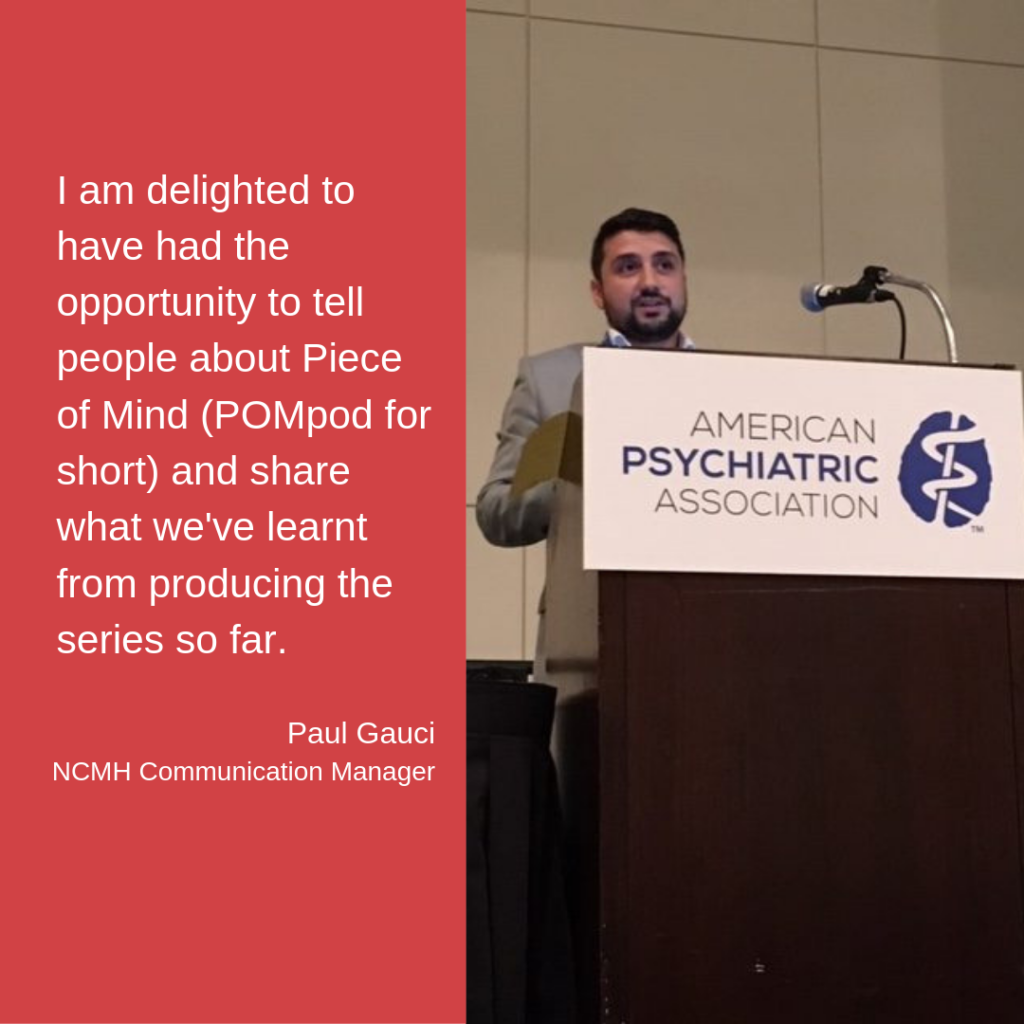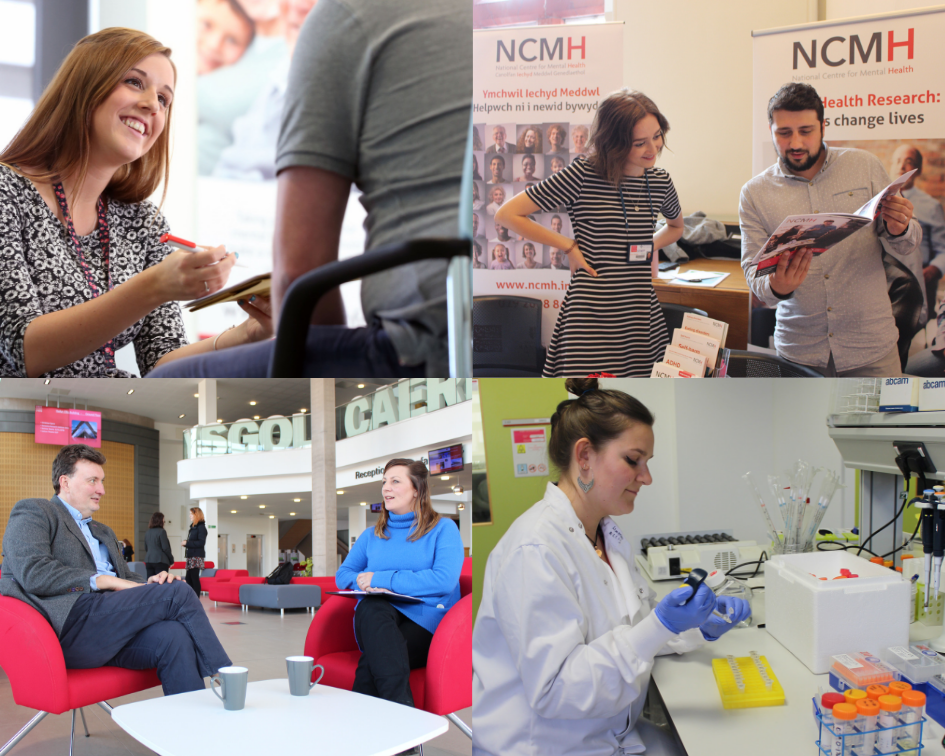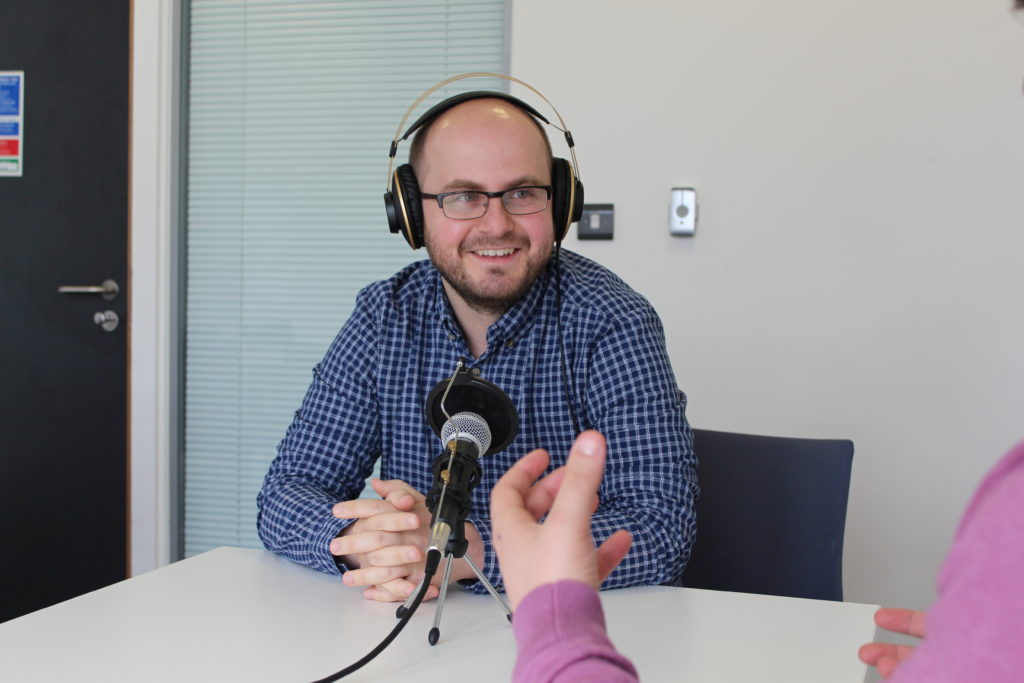Posted July 02nd 2019
The discussion focused on podcasting in psychiatry and brought together four podcasts with different aims and audiences.
Our goal was to share our podcast ‘journeys’ and get the audience thinking about how they could use podcasts to share their knowledge and expertise beyond the clinic and academic journals.


It was also an amazing experience on a personal level. Those who know me will know I really don’t like being even close to the centre of attention, so standing up in front a room full of strangers is not my idea of fun! But I do recognise that it’s an important skill, and really, when the topic is something you’re passionate about, it’s not as difficult as you think it will be.
Reflecting back on my talk I realise that we’ve never really given POMpod a proper introduction, other than a short news story about our first episode. So in this blog, I’ll share a bit of background about what motivated us to start podcasting, why the format works well for us and how we want to develop it in the future.
Why a podcast?
Podcasts have become increasingly popular over the past few years. Most of us have a smartphone, making them easily accessible to lots of people. The format lends itself to longer, more in-depth conversations compared to blogs (so I’ll try and keep this relatively short!) and videos, where you’re only likely to keep people’s attention for a few minutes.
This makes podcasting a great fit for us, as we’re able to tackle different issues around mental health in the detail they deserve.
This, in turn, supports us to achieve some of our main goals – to help improve understanding of mental health and combat the stigma around mental illness.
Piece of Mind
At NCMH and through our partnership with the MRC Centre for Neuropsychiatric Genetics and Genomics at Cardiff University, we have access to a truly multidisciplinary research team with a huge amount of expertise between them.

We want to share our expertise with the world, whether that’s what our research is telling us about the underlying causes of mental health problems or the latest treatments showing promise through clinical trials. This knowledge gives us a strong basis for the podcast, providing what I hope is an interesting insight into mental health.
While the scientific and clinical expertise is an important element, I also recognise that the people who have lived experience of mental health problems are experts in their own right.
POMpod brings the two together, with each episode focused on a specific area of mental health, for example, postnatal depression. We invite a researcher or clinician to join someone affected by the condition for a conversation about each of their experiences, the latest research in the area and their hopes for the future.
This format has made for some fascinating episodes so far, which I put down to the informal style and loose structure allowing conversations to flow naturally.

As well as POMpod being a vehicle to engage people about our research and mental health in general, it’s also a great way of letting people know there is research they can participate in.
By involving the people behind the research in the podcast, we’re humanising them, giving them a platform to speak about their work and their motivations. I hope this goes some way to help people overcome any fear they might have about taking part in research, which can sound scary if you’ve never participated in a study before.
If you’ve ever wondered what taking part in research is like, see what our research champions have to say on it.
The future
We’re planning a number of future episodes to cover areas including psychosis and bipolar disorder, and we would love to take a look at some wider issues, like mental health in schools and public involvement in research.
We would also like to try and get our audiences more involved, so we’ll be giving them the chance to send us questions to ask during each episode and running a feedback survey to find out what people enjoy about the show and what we could do better.
We also welcome any feedback people want to share with us, so if you’re reading this, you’ve listened to POMpod and you want to tell us what you think, we’re all ears!
Feel free to contact us @ncmh_wales on Twitter, email us at info@ncmh.info or fill in a contact form.
Listen
You can find all our episodes on our podcast page, along with show notes including links to research and resources.
Shout out to the other podcasts
These are the other podcasts featured on the panel discussion, all produced by a great group of people:
I’ll finish off by saying a huge thank you to Dr Mehul Mankad from Duke University for inviting me to be part of the panel and getting a slot at the conference.
Sign up now and receive new blog posts to your inbox.
